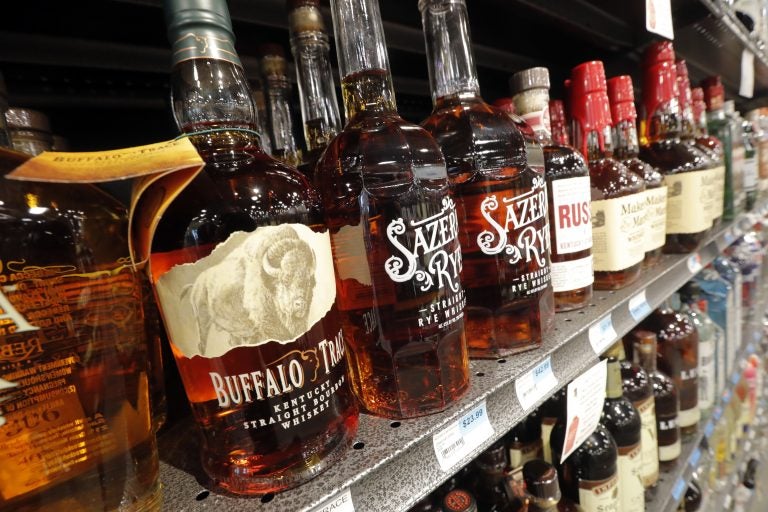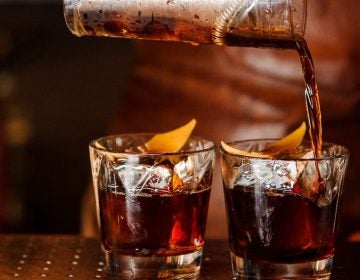Foreign spirits producers say Pa. liquor pricing violates international law
Pennsylvania's state-run wine and liquor industry may have run afoul of international trade law.

The PLCB launched its flexible pricing after the legislature approved it in 2016. (Gerald Herbert/AP Photo)
Pennsylvania’s state-run wine and liquor industry may have run afoul of international trade law.
Industry trade groups representing producers in several countries have signed on to a letter complaining the way the commonwealth prices alcohol is too opaque, and amounts to “stealth taxes.”
Pennsylvania changed the pricing structure for its state liquor industry in 2016, with authorization from the legislature.
Previously, it had levied a flat, 30% markup on all the products it sold. But the new system gave the state Liquor Control Board power to negotiate directly with wholesalers, and then set prices based on those agreements.
The change was pitched as a way to save consumers money, but also pump more money into revenue-starved state coffers.
But a group of spirits producers from Canada, Australia, New Zealand, Scotland, the United Kingdom, and the European Union say they’re concerned it has made the markups unfair.
Plus, they say the system’s too opaque.
The PLCB maintains it has been transparent and open about its pricing and says it’s having “collaborative” discussions about markups with suppliers.
—
Editor’s note: This article has been updated to correct an error. It has been updated to reflect that industry trade groups have signed on to a letter, lodging complaints of “stealth taxes.”
WHYY is your source for fact-based, in-depth journalism and information. As a nonprofit organization, we rely on financial support from readers like you. Please give today.




